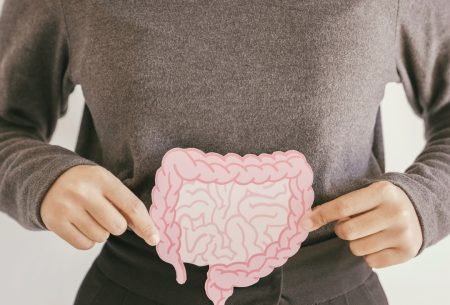You’ve probably been spending an unprecedented amount of time with those you live with over the last 12 months, whether it’s family, housemates, partners or your dog, no doubt you’re getting more up close and personal than ever.
We share a lot in our relationships – trust, common interests, the TV remote control (if you’re lucky) – but there’s one thing you could be sharing without even realising it: your gut microbes.
In fact, a recent study found that twins living in the same place had a greater resemblance in gut microbiota (or GM, the trillions of microbes in your gut) than twins not living together.
When it comes to your significant other, spouses living together also had more similar GM diversity than unrelated people not living together – albeit the similarity was much less than in twins.
Interestingly, the similarity in microbes when you’re cohabiting doesn’t stop at human-to-human – it applies to human-to-pet too. Another study showed adults living together who also owned dogs had a significant increase in shared skin microbiota than those without, and dog owners also shared more skin microbiota with their own dogs than with other dogs.
Although the microbial exchange here was focused on our skin microbiota (the trillions of microbes on our skin), owning a furry pet can also influence our GM and has been linked with better immunity.
For the loved-up couples, it’s not just about your GM, but your oral microbiota too – the community of microbes that call your mouth home.
With every ‘intimate’ kiss, we transfer around 80 million bacteria. And your oral microbiota work hard to support a healthy mouth environment, as well as acting as a bodyguard to our GM. One study even found the oral microbiota was associated with weight gain, raising the question of whether our partner’s diet and health could even influence our own via the mouth. Pucker up!
Full disclosure
It’s unlikely that simply living with someone (or kissing them) will be able to significantly modify your own GM to a meaningful level – but it does suggest there is a role for shared household effects and the influence of environmental conditions on our GM and overall gut health.
Either way, it’s worth looking after your relationship with your GM too and giving your – and your cohabiters’ – guts some love, with plenty of plants and fibre!













